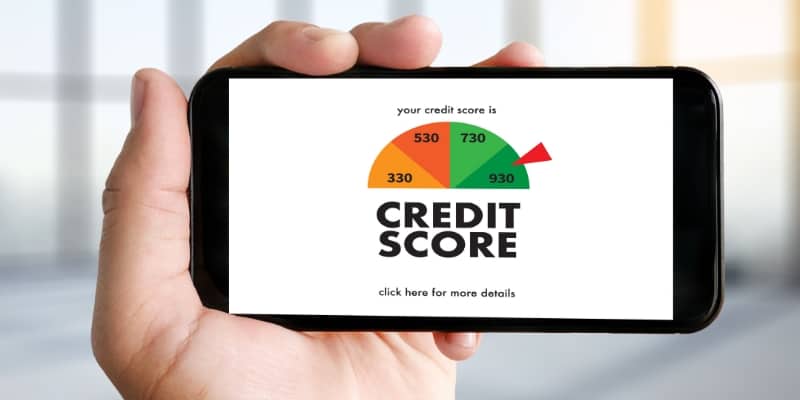What’s more important than your actual credit score?
Your credit history, of course! Your credit history consists of information that you give when you open a new line of credit, such as your social security number and information about your income and living situation. This information is then used to calculate your score and determine if you are worthy of the loan or line of credit you have applied for. You can have a low credit score due to late payments or too many loans, but the good news is that there are ways to increase your credit score!
1) Pay All Bills on Time
One of the main factors that make up your credit score is your credit utilization rate. Using 10 percent or less of your available credit is best because it shows you’re managing your debt responsibly. The absolute minimum amount of available credit you should carry at any given time is a good chunk more than you think: For example, if your limit on a credit card is $1,000, don’t keep just $100 in reserve; bump it up to $500 or so. This way, if something happens and you need access to some cash for an emergency, you won’t be tempted to tap into more than 10 percent of your overall limit. Paying all bills on time also affects your score —even one payment by 30 days and watch as every other aspect of your financial life goes from excellent to poor overnight! Keep track of what bills need to be paid when using tools like Mint so you can schedule payments well in advance.
2) Keep All Old Cards Open
One of the best ways to maintain good credit is by keeping all of your credit cards open, as opposed to closing them. Keeping an open line of credit, even if you aren’t actively using it, will help you keep your score up. If you want to close a card, make sure it has no annual fee and wait at least six months before pulling the trigger. This way, they won’t ding your credit when they report that card as closed (and in turn lower your available limit). This also means paying off any balance owed on those cards; don’t do anything that makes these accounts look more risky than they already are! For example, taking out another new loan or opening up new lines of credit could make for a bad situation for your credit score.
3) Get the Best Interest Rate Possible
Before applying for a credit card, check what your credit score is first. The higher your score, or credit rating, the lower your interest rate will be on any debt you take on. For example, if you are approved for a balance transfer card with an annual percentage rate (APR) of 9 percent and a low credit limit of $500, that rate could jump to 25 percent if your credit isn’t good enough. If you have bad credit or have been turned down in the past by other creditors, work to improve your credit by paying all your bills on time and keeping balances below 50 percent of each line of credit. It may take a few months before lenders see that you have changed—and raise your interest rates accordingly—but it can save thousands in interest payments over time. Another option: Apply for small lines of credit at several different institutions as opposed to one big one; some smaller banks may be willing to extend you more favorable terms than others, especially if they know they don’t have much risk since there aren’t too many options out there beyond them.
4) Use Your Credit Card for Everyday Purchases
Let’s say you have $400 in credit card debt with a 12% interest rate. On top of that, your bank account balance is $0 and your monthly income is $2,000. The equation looks like $400 (credit) + $2,000 (income) –$0 (bank) = -$2,600. In other words, you can’t even cover rent and utilities because there isn’t enough money coming in to pay for it all. The only solution: increasing your credit score by paying off some of that debt or securing a better-paying job. Any money you can put toward decreasing your outstanding debt will help increase your score—and get you closer to financial freedom.






